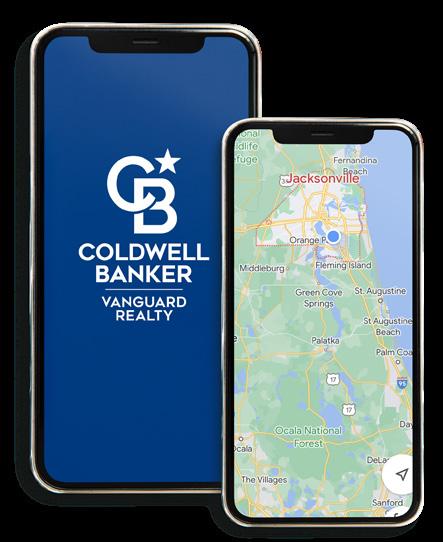


MY COMMITMENT TO MY BUYERS




MY COMMITMENT TO MY BUYERS
• Conduct counseling and information sessions to identify your needs and goals in order to plan an accurate property search.
• Offer to arrange a pre-qualifying or pre-approval meeting with a lender to determine affordability range.
• Commit to priority availability for meeting your needs and schedule for property research and showings.
• Offer access to community and property information.
• Complete a market search to identify properties consistent with your needs and price range.
• Provide data on recently sold properties within the area of your home selection, if requested.
• Offer to provide property description and seller’s statement of property condition as available.
• Prepare a written Offer to Purchase on the property of your choice, reflecting your price and terms.
• Present all purchase offers in a timely fashion using standardized forms.
• Provide assistance in accessing information on licensed building inspectors prior to the Offer to Purchase.
• Assist you in monitoring the status of satisfaction of contract contingencies.
• Accompany you on walk-through property inspections before closing, if provided for in the contract.
• Contact you after closing to assure the satisfactory completion of all service details.


Congratulations! You’ve decided to start fresh and purchase a new home. This is a very exciting time for you and I look forward to guiding you smoothly through this process, helping you to efficiently find the home of your dreams. As you will see, there are several steps you need to take before you move into your new home. When using a Coldwell Banker Vanguard Sales Associate, you will feel confident your search for a new home will be very successful. Let’s get started!
1. You’ll have an expert to guide you through the process.
Buying or selling a home usually requires disclosure forms, inspection reports, mortgage documents, insurance policies, deeds, and multi-page settlement statements.
2. Get objective information and opinions.
I can provide local community information on utilities, zoning, schools, and more. I’ll also be able to provide objective information about each property.
3. Find the best property out there.
Sometimes the property you are seeking is available but not actively advertised in the market, and it will take some investigation by me to find all available properties.
4. Benefit from my negotiating experience.
There are many negotiating factors, including but not limited to price, financing, terms, date of possession, and inclusion or exclusion of repairs, furnishings, or equipment.
5. Property marketing power.
Real estate doesn’t sell by advertising alone. In fact, many real estate sales are the result of a practitioner’s contacts through previous customers, referrals, friends, and family.
6. Real estate has its own language.
If you don’t know a CMA from a PUD, you can understand why it’s important to work with a professional who is immersed in the industry and knows the real estate language.

7. Buying and selling is emotional. A home often symbolizes family, rest, and security- it’s not just four walls and a roof. Having a concerned, but objective third party helps you stay focused on both the emotional and financial issues most important to you.
8. Ethical treatment.
As my customer you can expect honest and ethical treatment in all transaction-related matters. It is mandatory for me to take the Code of Ethics orientation and I’m also required to complete a refresher course every four years.

Familiarize yourself with the mortgage process
Get pre-qualified and pre-approved
Get finances in order and prepare your budget
Identify your needs and wants
Find the home that meets your criteria
Negotiate a price and make an offer
Arrange for home inspection
Confirm closing date
Conduct walk-through of home
Close and settle deal
It usually takes 45 to 60 days to process an application, although it can take as few as seven days and as long as 90 days for some transactions. The actual time depends on how quickly the lender can obtain a credit report, verification of employment and bank accounts, and an appraisal of the property.
Be prepared to provide verification of income (including a pay stub and recent tax returns), bank account numbers and details on your long-term debt (credit cards, auto loans, child support, etc.). If you’re self-employed, you may also be required to provide financial statements for your business. In recent years, lenders have been required to obtain more specific information from borrowers in order to package and sell loans to investors. Could anything delay approval of my loan?
If you provide the lender with complete, accurate information, everything should go smoothly. You may face a delay if the lender discovers credit problems or if personal or financial status changes have occurred between the time you submit an application and closing. There may also be delays associated with the appraisal.

included in my house payment?
Principal and interest on your loan. Depending on the terms of your loan, the payment may also include hazard (homeowners) insurance, mortgage insurance and property taxes.
Can I pay those other things separately?
Not if it’s an FHA or VA-insured loan. With most other loans, you can pay your own taxes and insurance if you borrowed no more than 80% of the purchase price or appraised value of your home. Check with your lender to be sure.
Closing costs cover processing and administration of your loan. In addition to a loan fee, you’ll usually be asked to prepay interest charges to cover the partial month in which you close, and you may be required to deposit monies into an escrow account for property taxes, hazard insurance and mortgage insurance. These are called “Reserves”.
do my mortgage payments start?
Usually about 45 to 60 days after closing. The actual date of your first payment will be included in your closing documents. More Questions?

One of the many advantages of working with me is my access to multiple listings. That means you can see every house on the market if you’d like to. I can provide a detailed description on any property of interest, including special features. Plus, I screen all the listings before I show them to you, in order to save you time and eliminate the homes that don’t meet your criteria. Open houses are a great way to get a feel of a specific property. You can be sure that I will inform you of upcoming open houses, giving you the important information and details of the property. If you require special features such as a swimming pool, wheelchair access, or even skylights, I will be sure to show you only those properties that accommodate your needs.

What does your future home look like? Where is it located? As you hunt down your dream home, consult this list to evaluate properties and keep your priorities in mind.
• What neighborhoods do you prefer?
• What school systems do you want to be near?
• How close must the home be to these amenities:
• Public transportation
• Airport
• Expressway
• Neighborhood shopping
• Schools
• What architectural style(s) do you prefer?
• Do you want to buy a house, condominium, or town home?
• Would you like a one-story or two-story home?
• How many bedrooms must your new home have?
• How many bathrooms must your new home have?
• Home Condition
• Do you prefer new construction or an existing home?
• If you’re looking for an existing home, how old of a home would you consider?
• How much repair or renovation are you willing to do?
Front Yard Must Have Would Like Willing to Compromise Not Important
Back Yard Must Have Would Like Willing to Compromise Not Important
Garage (__)Cars Must Have Would Like Willing to Compromise Not Important
Patio/Deck Must Have Would Like Willing to Compromise Not Important Pool Must Have Would Like Willing to Compromise Not Important
Family Room Must Have Would Like Willing to Compromise Not Important
Formal Living Room Must Have Would Like Willing to Compromise Not Important
Formal Dining Room Must Have Would Like Willing to Compromise Not Important
Eat-in Kitchen Must Have Would Like Willing to Compromise Not Important
Laundry Room Must Have Would Like Willing to Compromise Not Important
Attic/Storage Must Have Would Like Willing to Compromise Not Important
Fireplace Must Have Would Like Willing to Compromise Not Important
Master Bath Must Have Would Like Willing to Compromise Not Important
Wood Floors Must Have Would Like Willing to Compromise Not Important
Apply for a mortgage/paperwork/loan application.
Lender begins processing application.
Lender provides booklet of estimated closing and related costs.
Lending institution requests a credit report, verification of employment and assets, and an appraisal of home.
Estimate of your loan costs in form of initial Truth in Lending Disclosure Statement or Loan Estimate.
Lender evaluates the application and pre-approves the loan.
Search begins- Sales Associate shows you multiple listings
You find the house you want and make an offer.
Lender processes loan and issues final approval.
Lender disburses funds to closing agent.
Sign closing documents and loan is funded.
Appropriate documents recorded at county recorder’s office.
The home is yours!
Unless you’re a cash buyer, homes and financing are closely intertwined. (Financing is the difference between the purchase price and the down payment, commonly referred to as the mortgage.) Of course, a bank will only lend you money if they’re sure your credit is strong and they’re confident you have the ability to pay them back. A bank checks your credit by studying your financial history, income, federal tax returns, pay stubs, and long-term debt information (such as credit cards, auto loans, child support, etc.) to determine if you are a good candidate for a loan. If your credit report is good, then you have an excellent chance of obtaining a mortgage. If not, then you must take the appropriate steps to improve your credit rating.
Before you can begin to search for a new home, you need to determine your budget and estimate how much you can afford. One of the most important factors in figuring out your financial budget is getting pre-approved for a mortgage. A mortgage is an advance of money from your lender that will cover the finances of your new property. The mortgagee (you) must make monthly payments to repay the debt. The monthly payment consists of principal and interest and is repaid over 15, 20, 30 or 40 years. This is how most homes are financed.

I will write up an offer once you’ve found the perfect house. However, before you can expect to close on your dream home, there are various steps that must be completed. These include the loan application, qualification and commitment, inspections, repairs, surveying and appraisal. You must also have your new home title analyzed and insured, as well as acquire homeowner’s insurance.
At the closing meeting the transaction will be finalized, the Disclosure Statement is released, money is exchanged and all paperwork and agreements are signed. Finally, the title of the property is transferred and you are the owner of your new home.


